Tom Mock's SPFBO9's Opening Reads Final Thoughts
12 Mar 2024When SPFBO9 started last year and I saw other indie authors posting their 1st chapter elimination threads of the books in the blog-off, I was inspired to try it myself on twitter.
Instead of judging books based purely on my own taste, though, I tried to evaluate each opening on its own merits as if I had pulled the book randomly from the shelf and immediately started reading page 1. If the opening made me want to keep turning the pages, it passed my humble test. The only constraint I put on myself was that I wouldn't read more than chapter 1, but I could read beyond the prologue, if it was short enough.
I never expected the experience to be as rewarding as it has been.
First and foremost, I have to acknowledge how impressed I am with the quality of the submissions to the blog-off. Out of 300 openings, about 200 did enough to make me want to continue turning the pages. Many came close. Many I wanted to see more of seemed like great fun. Some few dozen absolutely wow'd me!
Reading through these openings has made me even more honored than I was before to call myself your peer. It has also been very informative to me as a reader and a writer (but more on that later).
I've been asked more than once what were some openings that I thought were particularly good. Here's just a few title's, all of differing tones and styles, that I think had fantastic openings. Each grabbed my attention and still haven’t let go. (The "notes" links to my notes on twitter).
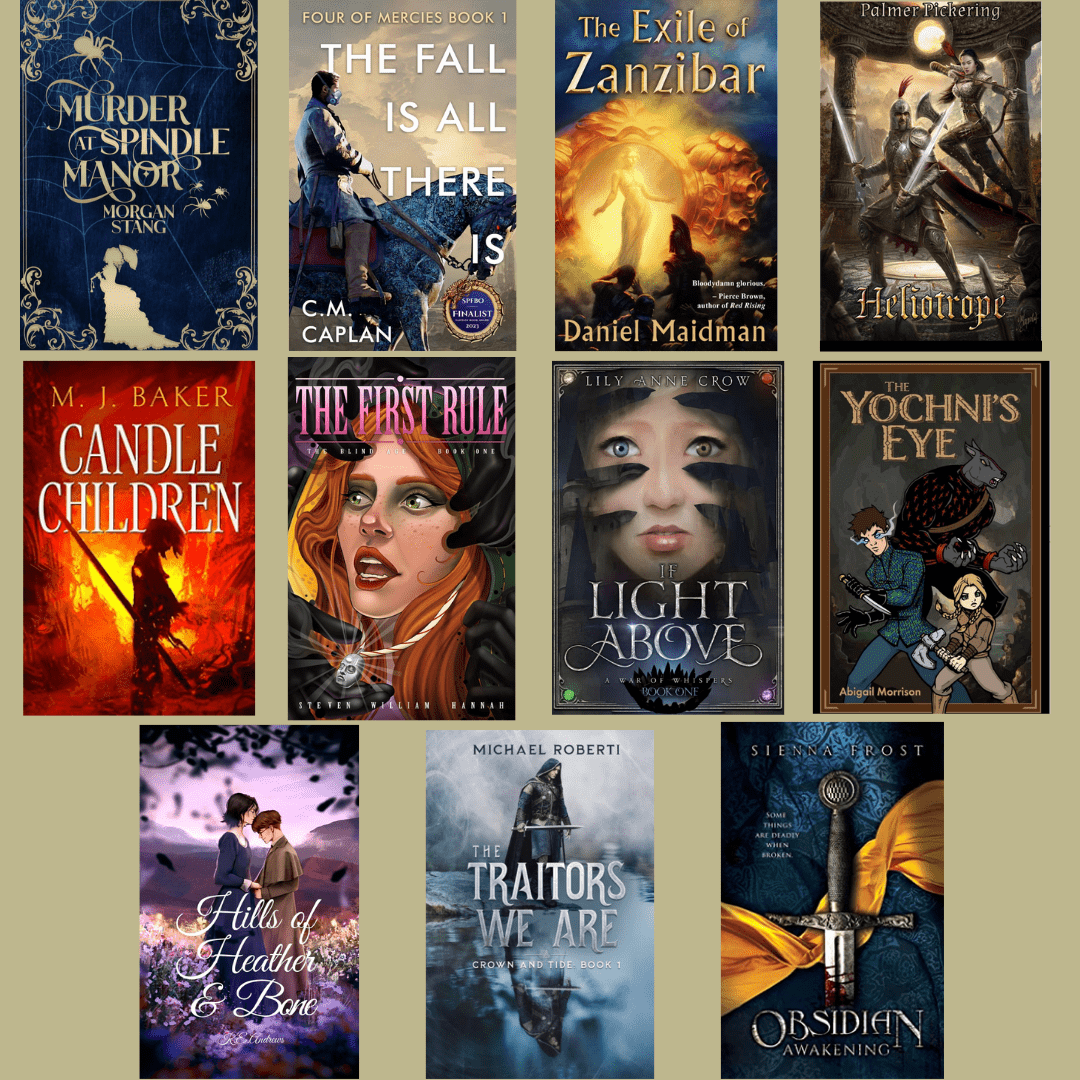
Murder at Spindle Manor (notes), The Fall Is All There Is (notes), The Exile of Zanzibar (notes), Heliotrope (notes), Candle Children (notes), The First Rule (notes), If Light Above (notes), The Yochni's Eye (notes), Hills of Heather & Bone (notes), The Traitor's We Are (notes), Obsidian (notes)
These are in no particular order, and I could certainly name more if I tried (I restricted myself to those I could name without looking anything up). Some are slow, some are explosive, some are detailed, some dialogue driven, but each of these openings have stayed with me, and they all do something unique. Each feels exactly like what it intends to be. Most are as damn near perfect as I've seen in print anywhere. Truly.
Go and read these openings. It will be to your benefit.
It's been a pleasure getting to know so many of these authors and their work over these months. Absolutely everyone was a great sport about my critiques. Some authors even took the opportunity to revise their openings. One of the advantages of being an indie author is that you can do that (though as I know all too well, there is a point where you have to shake a project’s hand and move on).
EC Greaves tweaked the first chapter of his finalist Daughter of the Beast, tightening it juuust so. I was impressed by how fast he did it.
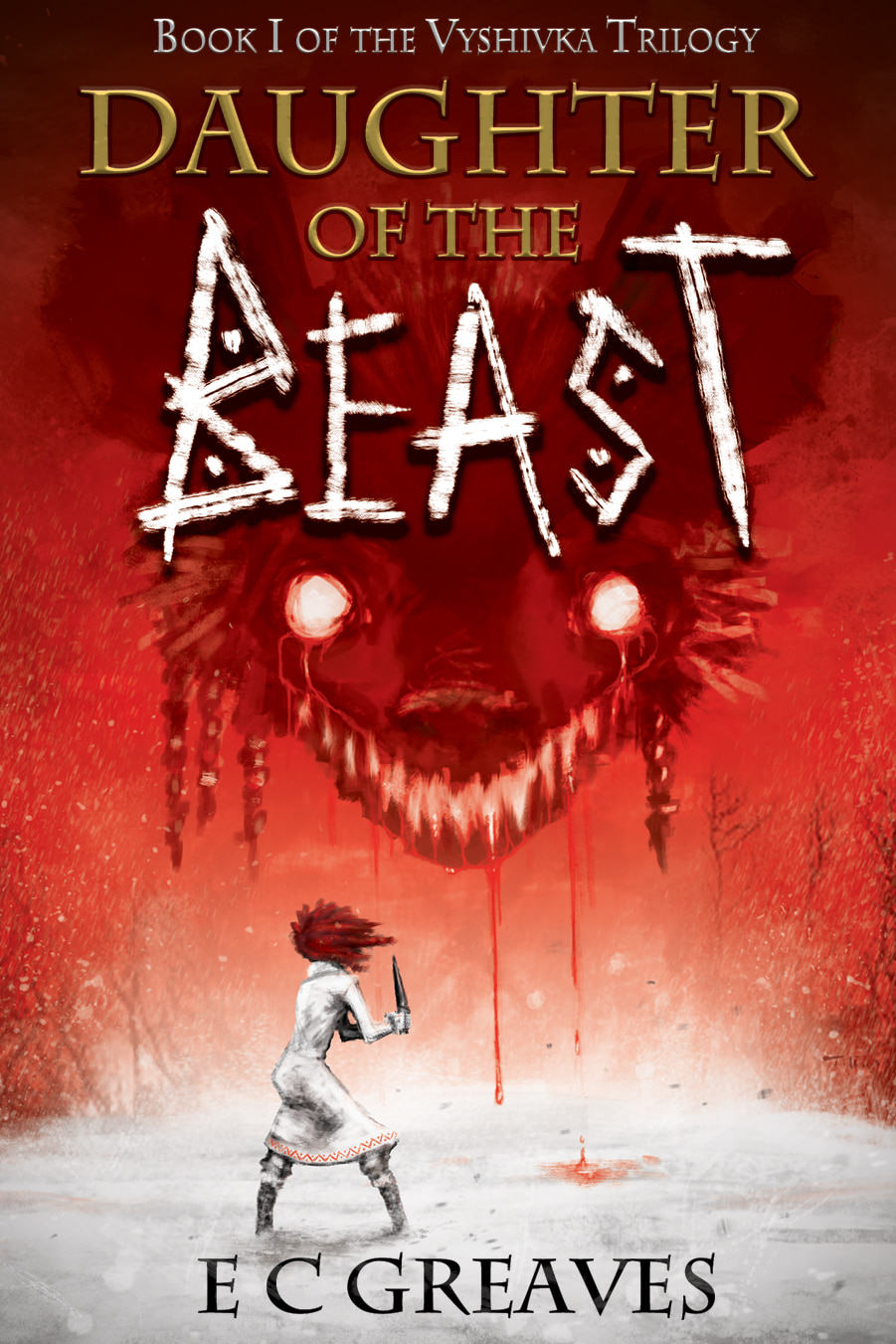
Though I initially passed on the opening of Peter Benton's Eve's Apple, he subsequently transformed the beginning so much, it was like an entirely new novel! My critiques from book #83 of my twitter thread now have absolutely no bearing on his text.
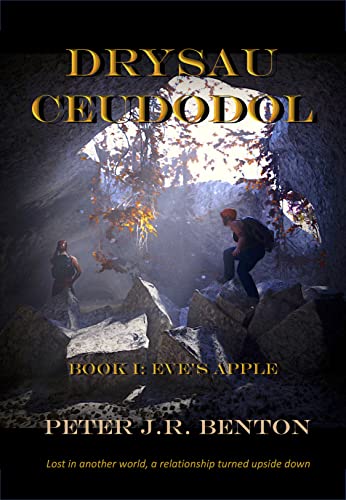
A Benefit I didn't expect:
I feel I've grown as a reader because of this experience. Before I started, I anticipated that I would lay waste to half or more of the blog-off entrants with my openings read through. But examining all 300 different writing styles and stories has had a relaxing effect, quite to my surprise, on what I expect from a story. I've loosened up, allowed myself to meet stories where they are, and I feel I'm so much the better for it.
I may not have otherwise picked up books like Sienna Frost's Obsidian, which wow’s me, or Sarah KL Wilson's Of Deeds Most Valiant, which is the definition of fun, or any of a number of other dramatic works with a romantic thrust.
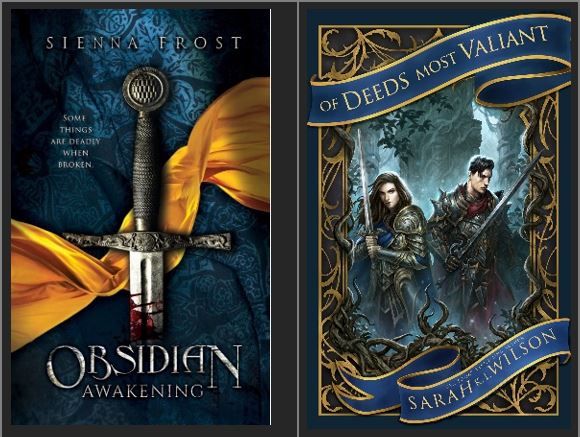
On Ratings, Quality, & Covers
The number of ratings a book had was not a good predictor of whether I would want to read more of it. I did want to read more of all of the finalist! I also wanted to read more of most (bot not all) of the semi-finalists. Some books that were cut in phase 1 had openings that wow'd me. But, as I said many times during my readthrough on twitter, the opening of a book is not its full measure.
Of course there were books I passed on that also did not have a large readership. The writing and story of a book are always going to be a factor (we would hope THE factor) in its success. Lots of stories with what I might call rough and ready, or purple prose looked like they were doing quite well, but these also seemed tailor made for a particular audience.
The single biggest predictor of a book having few ratings was not having a good, professional cover that resembled similar titles in its particular sub-genre.
A lot of us are pinching pennies, but do with this what you will.
What Made Me Want To Read More?
Story Was Everything
To my surprise, what I might have previously considered "strong prose" was not that important to my wanting to keep reading a book. Maybe this had to do with committing myself to getting through 300 openings and giving each a fair (I tried - sometimes you have a headache, tho, sorry!) assessment. But I don't think so. While strong prose was always nice to find, I did discover books that, while well-written, did not seem well-focused on introducing me to and developing a story.
I thought, for instance, purple prose would be a detriment to my enjoyment. It does have the effect of undermining the seriousness of a piece because it calls so much attention to itself and is often hyperbolic in its expressions. I discovered that, in fact, having prose wink at you stylistically and encourage you not to take it too seriously was an advantage for some works. All books do not have to be serious, even if their subject matter is grim and violent. Stylistically florid prose proved to be a fun break from the serious fantasy titles. As it turns out, fun is good!
Something HAPPENING
I've intentionally not called this "action," because I didn't need a chase or a fight to pull me into a story. In fact, sometimes those things could feel uneventful if they were just par for the course for the MC. But as long as the author started developing a chain of consequential action around some character, I found myself turning the pages to find out what would happen next.
If I was given an MC who wanted something, but there was something keeping them (maybe) from getting it, I got invested.
What they wanted didn't even have to be a matter of life and death. The character could want to get through the busy hours at their tavern, but because of an upcoming festival, they were particularly slammed (Anakisha’s Dragon). Or the character could want to keep several valuable books from being destroyed by an approaching storm, but they found themselves miles away from where the texts had been laid outside (Crown of Rebellion). Even these smaller, seemingly less consequential conflicts introduced me to who the MC was and the world they were living in.
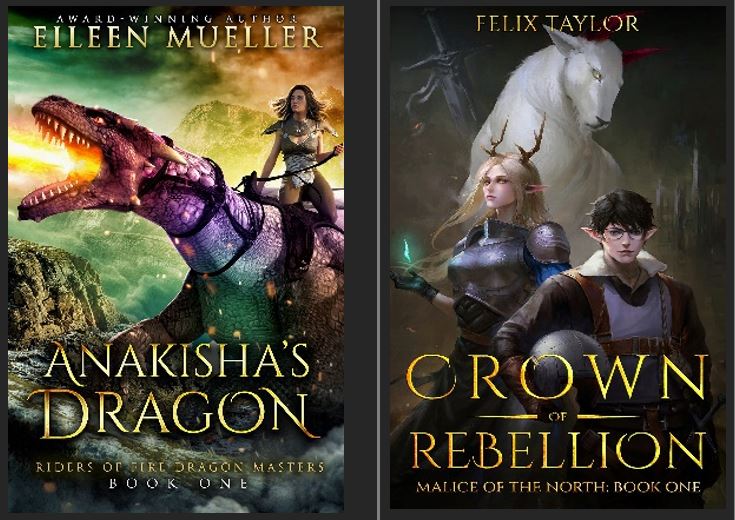
One of the juiciest things that could happen, though, was when I had the sense that a character's life would not be the same after the moment I was being presented with, or towards which the narrative felt like it was building.
Sometimes that sense could be subtle, as in the quiet, but growing tension of isolation that I feel is bound to break in Brian O’Sullivan's Liath Luachra. But as long as I felt the story being pulled towards some conflict or inciting incident, I was invested.
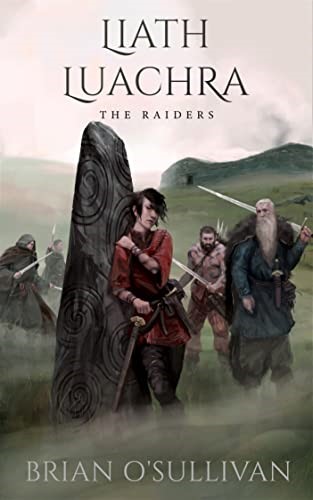
Focus
I found the confidence of an author not to try and tell me everything all at once was a huge boost to my confidence in their story. When the narrative focused on introducing a few key story details, that made a big difference in my engagement. All the books I listed above have great focus. So do, I expect, all your favorite novels at home.
**Honorable mention: stories always got bonus points for going big on their fantasy ideas, like The Fall Is All There Is where we meet our MC living in an apartment inside a giant skeleton.
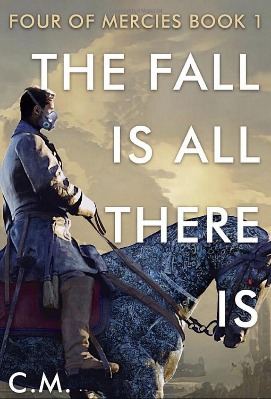
What Made Me Lose Confidence In A Narrative?
Too Many Plates
Openings that had too much information and too many story ideas left me unsure what was actually going to be important to the driving force of the narrative.
All those details could get hard to remember, and because I couldn't tell what was relevant to the heart of the story (that thing you might pitch a book with), I often found myself unable to invest in the story at all. There's nothing wrong with writing a complex book, it's just asking a lot of a reader to hit them with too much at once.
Overwriting
This one is really basic, and I almost want to call it "too much voice," but I've noticed and been guilty of trying to show the reader that, man, I can really write. Not just normal writing either, man, but writing like a really good author would write!
This tendency usually results in an uneven entry into the story where the author tries to over-emphasize the tone of their piece for a page or two, and then everything settles down into getting to the story and the characters.
We all love cool writing. It works best when its in service of the story, and not just flare for its own sake.
Needless Obscurity
I noticed some authors fell into a kind of storytelling like they were describing a movie they had seen to me. They would obscure story details, even withholding who characters were. Instead, I would be introduced to vague figures or men walking along a cliff. This, I found, kept me at arms length from the very characters who I was being asked to invest my interest in.
Of course there are good reasons to do this. Nothing in writing about here is intended to be absolute. I’m only trying to notice trends. But one of the strengths fiction has over cinema is its exposition. Fiction can tell your reader things in a sentence, whereas cinema largely works through implication. We can’t see the characters in fiction. We aren’t watching them behave. We only know what you tell us, so tell us the things that are important.
A name goes a long way - “Xadaxer the thief, the oldest denizen of the purloiners guild by 200 years, crept along the corridor” immediately clues me into a lot more story than calling him “the old man.”
Similarly, if Xadaxer the thief has a blade up his sleeve that could not only kill a man, but destroy his soul so he could never be resurrected, you should probably tell me that. It creates a better sense of anticipation and excitement than the mundane "an odd bulge in his sleeve at his wrist."
Imagine it: if I started my story with an old man in a hall with a bulge at his wrist, or Xadaxer and his soulrazor, which would you rather keep reading?
This in no way means I think everything about an opening has to be spelled out in simple, direct terms. Murder at Spindle Manor is, for instance, wonderfully mysterious, teasing lots of great details about its MC and setting. But by its first section break, I feel I know exactly what I need to know to be invested. Had it tried to tell me more, it would have lost some of its exquisite focus.
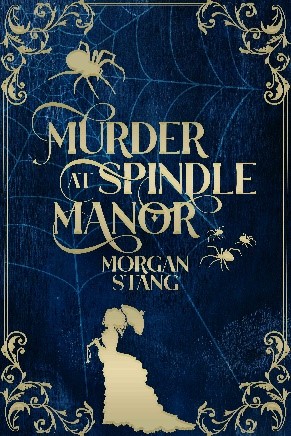
Bottom line: unless there's a sexy reason to withhold information (especially that the MC would know), introduce me to the world of the story by telling me things.
What Was My #1 Sin!
Confusion
The single biggest drain on my enjoyment of a work was being confused. If the narration jumped constantly between ideas instead of developing specific ideas, it could get very difficult to keep up with things and understand what was and wasn’t important. Narration that resisted being descriptive in favor of being heady, writerly, and metaphorical also could make me so very confused at a time early in the story when I desperately needed to understand just where I was, with whom, and what was happening.
Confusing character motivation could also be an issue. I don’t need to understand everything right away, but when characters behave inconsistently with what I’ve been told about them or their circumstances, my investment in the story breaks down. They are no longer real people; they are wooden puppets a writer is jerking around.
All too often as authors we know where we want the story to go but have a hard time justifying why our characters would behave the way we need them to. Don’t short these moments.
Slow down. Tell me the story. Stick to that, and you can’t go wrong. Who is it about? What's happening? You really don't have to do a lot. Just develop one idea at a time. I want to get to know your world and your characters. The things you reveal to me about it will be interesting, in part, because they aren't my life. I'm a reader. I'm a prisoner looking for an escape. I want to like your story. I want it to be my ticket outta here.
Find a trusted reader if you can to help you. When in doubt, be clear and make things simple. If you're not sure what you've written makes sense, it probably doesn't - or you're too close to the writing and need to spend some time away from it. Don't forget to rest, writers. You've got to let the well fill back up sometimes.
I'm Opening For Critiques
Since the response to my opening reads has been so positive (I'm thrilled to have been of any service), I am making time for paid critiques.
You can see all the details on my webpage, but I want to be able to offer something more affordable than a heavy developmental edit. I'll be offering opening critiques (length as defined mostly by you), and full manuscript critiques.
I'll do my best to help you tell the story you're trying to tell.
Finally
This has been great! Let's do it again for SPFBOX in a few months! And if you want the thoughts on all, there is this link to Goodreads that will help you!
I promise I'll do my best to read more than just the beginning of some of your novels in the meantime.
Dear authors, thanks for writing!
Sincerely, your fellow writer and reader,
Tom Mock
PS: Prologues
I don’t have anything to say about prologues. Tho I read my share of prologues that felt besides the point, or like the author was including some of their character/worldbuilding notes at the front of the book instead of integrating it into the narrative, I also read quite a few effective ones.
For an example of an effective prologue see Master of the Void by Wend Raven.
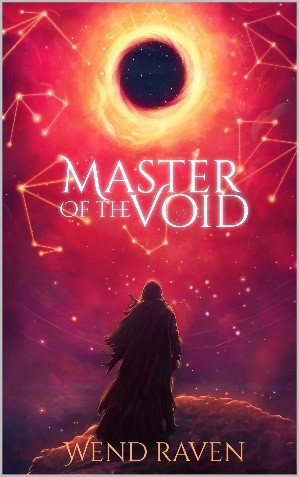
Its active, dangerous introduction to our world juxtaposes nicely with the quiet, academic life of our MC in ch1, promising that simple life of study is on some kind of collision course with what was introduced in the prologue.
About Tom Mock

I’m a North Carolina based fantasy and horror author. I earned an English degree from East Carolina University, where I was selected as an outstanding undergraduate creative writer. I earned a Masters in English from North Carolina State University, where I did my best to read all the assignments. I’m a slow reader, but I did my best. (The Victorian novel class may have been a mistake.)
My debut urban fantasy novel The Long Nights is a SPFBO8 Semi-Finalist and won the 2021 Indies Today Awards: Runner-up in Horror, which I’m very excited about since I spent 13 years working on it – writing, rewriting, rethinking, and rewriting it again (with other projects and time off in-between). It’s the first in a series I intend to write more in, though the follow-up novel has been much delayed due to – you guessed it – a great deal of revision.
My short fiction has been selected as a finalist in the Press 53 awards and nominated for a pushcart prize. I write about outsiders and ghosts and magic.
I love dogs, and am forever helping my parents with their small horse farm.
